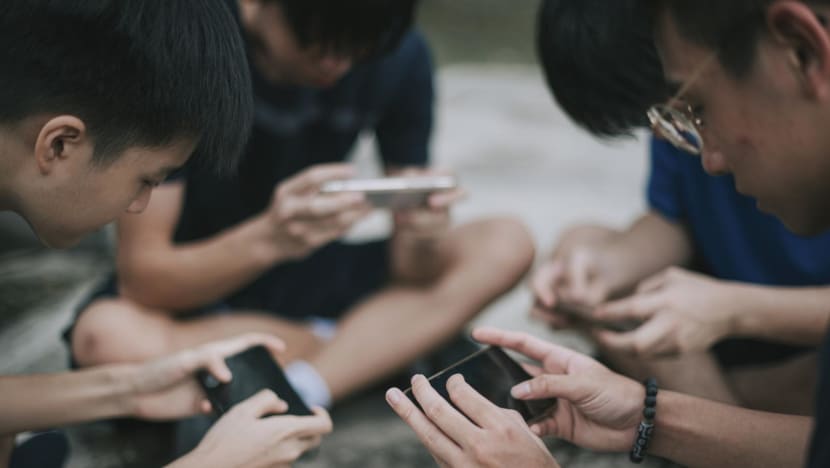In Indonesia’s Surabaya, some 3,000 children, adolescents treated for mobile gadgets, online gaming addiction
A psychiatrist at Surabaya’s Menur Mental Hospital says that those brought to the hospital for their addiction exhibited angry and antisocial behaviours.

An illustration of youths playing online games on their mobile devices. (Photo: iStock)
JAKARTA: A mental hospital in Indonesia’s East Java province has treated some 3,000 children and adolescents since the start of this year for addiction to mobile gadgets and online games, in what appears to be a growing problem affecting young people in the country.
Local media Radar Surabaya reported that there was an increasing number of such patients that had been treated at the Menur Mental Hospital in Surabaya from January 2024 to last month.
Dr Ivana Sajogo - a psychiatrist at the hospital - told the media outlet that children and adolescents brought to the hospital for addiction to mobile gadgets exhibited angry and antisocial behaviours.
She said that they tend to first be addicted to mobile gadgets before moving on to online games, adding that these young patients would undergo treatment for two weeks at the hospital in most cases.
"They need (the) treatment to reduce the use of gadgets and when they are hospitalised they mostly tell us why they like to use gadgets. After we find the root of the problem, then we do therapy (with them)," Dr Ivana was quoted as saying by Radar Surabaya on Tuesday (Jul 23).
According to the State of Mobile 2024 report released by Data AI earlier in January, Indonesians are the most addicted in the world to using their mobile phones, clocking an average usage of 6.05 hours per day in 2023. Data AI is a mobile industry analysis firm based in the United States.
While data from the firm mainly looked at Indonesia’s general population, it did show that many mobile gadget users in the country were children and teenagers.
Meanwhile, a survey published by the Indonesian Internet Service Providers Association in February found that of the 78.19 per cent of internet user population in the country, 34.4 per cent of them were those who are Gen Z. Gen Z are those who were born between 1997 and 2012.
Compared to other generations, Gen Z form the largest percentage of internet users in Indonesia, the survey found, Kompas had reported.
Previously, data from the Central Statistics Agency (BPS) in 2022 showed that 33.44 per cent of young children aged six and below in Indonesia used mobile phones or wireless gadgets while 24.96 per cent of those in that age group had access to the internet.
Dr Ivana - the psychiatrist - said gadget addiction can cause deviant behaviours in young people such as emotional disturbances, impulsiveness, and aggression.
Local news outlet Jatim Post in May reported on a case in East Java’s Jember, where a pair of siblings aged 17 and 19 were addicted to online gaming, only leaving their rooms to eat and shower.
The situation escalated when their mother realised that her children no longer recognised her or their father. The siblings were then rushed to the hospital for conditions related to excessive mobile phone use and had to undergo psychiatric treatment to address their depression.
Separately in June, a 17-year-old teenager in Blitar, East Java died by suicide after his parents confiscated the mobile phone that he uses to play online games.
Last year, Indonesian Child Protection Commission (KPAI) Commissioner Retno Listyarti said that mobile phone addiction among young people is occurring in many parts of the country. In Jakarta as well as West Java, psychiatric hospitals have had to open paediatric wards for the first time to treat children with mental disorders linked to gadget addiction.
Mdm Retno said that children should be playing and socialising more, but the long COVID-19 pandemic previously meant that more were staying at home and only making friends through the use of the mobile gadgets.
Meanwhile, the Ministry of Women's Empowerment and Child Protection said the government is currently finalising a Presidential Regulation on the protection of children from online games, which is expected to be issued later this year.
Mr Nahar, who is Deputy Minister for Child Protection at the ministry, said in April that the presidential regulation would be issued to respond to the rise of crimes such as violence, pornography, sexual harassment and bullying committed by children due to the influence of online games.









.jpg?itok=hpq6PL6v)





